Fulbright Arctic Initiative Scholars
Meet the 2015-2016 Arctic Initiative Scholars
| |
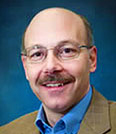 |
Dr. Michael Sfraga
(Co-Lead Scholar)
United States
Vice Chancellor, University of Alaska Fairbanks (UAF)
Professor of Arctic Policy
School of Natural Resources and Extension
Discipline: Geography |
| Dr. Sfraga is a geographer with a focus on the geography of Arctic landscapes, Arctic policy, and the impacts and implication of a changing climate on the social and political regimes in the Arctic. Dr. Sfraga has served as a faculty member, department chair, and Associate Dean in the UAF School of Natural Resources and Extension, where he lead a comprehensive revitalization of the geography program. These changes included the creation of degree programs in Circumpolar North and Pacific Rim Studies, Geographic Information Systems and Technologies, and Landscape Analysis and Climate Change Studies. Dr. Sfraga currently serves in a Cabinet level position as Vice Chancellor, with duties and responsibilities across a broad range of programs, initiatives, and services. Dr. Sfraga is co-director of the University of the Arctic Institute for Arctic Policy and a member of the Board of Directors, Institute of the North. |
|
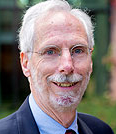 |
Dr. Ross A. Virginia
(Co-Lead Scholar)
United States
Director, Institute of Arctic Studies
Myers Family Professor of Environmental Science Dartmouth College
Discipline: Environmental Sciences |
| Dr. Virginia is the Myers Family Professor of Environmental Science and Director of the Institute of Arctic Studies within the Dickey Center for International Understanding at Dartmouth College, Hanover, NH, USA. He received his Ph.D. in Ecology from the University of California at Davis and previously held positions at the University of California Riverside and San Diego State University. He is an ecosystem ecologist interested in how rapid environmental change affects ecosystems and society. His research seeks to understand how climate change alters soil biodiversity and the cycling of carbon between ecosystems and the atmosphere. His current research examines carbon and nitrogen cycling in the McMurdo Dry Valleys of Antarctica, where Virginia Valley is named in honor of his research, and in the tundra ecosystems of western Greenland. He also studies the relationships between the disciplines of ecology, ecosystem science, and environmental law. He is active in Arctic policy and global environmental issues as Co-director of the University of the Arctic Institute for Arctic Policy. |
|
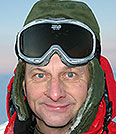 |
Dr. Tom Arnbom
Sweden
Senior Conservation Officer, WWF Sweden
Discipline: Biological Sciences |
| Tom Arnbom has more than 40-years’ experience in the Arctic and has seen many changes over the years. His career can be divided into four sections: academic, media, government and working for an NGO. His academic background is in marine mammals (MSc Sperm whales off Galapagos Islands, Memorial University, Canada and Ph.D. Southern elephant seals on South Georgia, Antarctica at Stockholm University/British Antarctic Survey, Sweden/UK). During his graduate studies at South Georgia, he did some filming, which led him into media after finishing his Ph.D. During almost ten years he was part of the international natural history film industry. He used his scientific background to transform relatively heavy scientific findings into stories few had told the public. The end result should be simple and correct narration. Then he got an offer for a position at the Swedish Ministry of Environment with a group of external experts who were giving advice directly to the Minister. In 2007 he went to WWF Sweden as Senior Conservation Officer. Today, he is responsible for Arctic issues, such as Arctic Council and to coordinate projects in the Russian Arctic. He has participated in four WWF expeditions: Chukotka-polar bears (2007), Svalbard-climate change (2009), Laptev Sea-walrus (2013) and Svalbard-polar bears (2014). WWF has broadened his knowledge of the Arctic, from political negotiations to pure scientific questions. The Arctic is an intellectual challenge while it is undergoing some dramatic shifts, and conservation has to manage a moving target where the end result is unknown. That is why he loves this region and cares for the people living here. His task during the Fulbright is to develop a pan-Arctic agreement for management of walrus. |
|
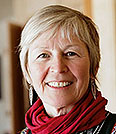 |
Dr. Linda Chamberlain
United States
Founding Director and Public Health Scientist, Alaska Family Violence Prevention Project
Adjunct Professor
University of Alaska
Discipline: Public/Global Health |
| Linda Chamberlain, an epidemiologist, is the founding director of the State of Alaska Family Violence Prevention Project and an adjunct professor at the University of Alaska. She earned a Masters of Public Health degree at Yale School of Medicine and a Ph.D. from Johns Hopkins Bloomberg School of Public Health. The scope of her research has expanded from an initial focus on the effects of domestic violence on women and children to include other adverse childhood experiences with an emphasis on the implications of trauma for early brain development. Known for her ability to translate science into practical strategies for diverse populations that can be adapted into daily practices, she is the author of numerous curricula and community resources. Her research interests include the application of mind-body practices to promote self-regulation and resilience among children and adults who have experienced trauma and studying the social ecology of resilience to identify and promote core elements of trauma-informed, self-healing communities. She has been a national advisor to Futures Without Violence for 15 years during which time she has helped to shape national policies, best practices and standards of care. Recognition for her work includes a National Kellogg Leadership Fellowship, an Alaska Women of Achievement Award, and serving as the Inaugural Scattergood Foundation Scholar on Child Behavioral Health. She lives on a rural homestead with her husband and dog team outside of Homer, Alaska. |
|
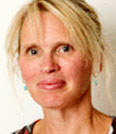 |
Ms. Susan Chatwood
Canada
Executive and Scientific Director, Institute for Circumpolar Health Research
Assistant Professor, Dalla Lana school of Public Health
University of Toronto
Discipline: Public/Global Health |
| Susan Chatwood is the Executive and Scientific Director of the Institute for Circumpolar Health Research in Yellowknife, Northwest Territories, Canada. She is an Assistant Professor in the Dalla Lana School of Public Health at the University of Toronto. She has a Bachelor of Science in Nursing from University of British Columbia, holds a Masters in Epidemiology from McGill University and is a Ph.D. candidate in Medical Science at the University of Toronto. She is Past President of the Canadian Society for Circumpolar Health. Susan has spent most of her career in remote and northern communities, working in the clinical setting, public health and research. Her research interests include circumpolar health systems stewardship and performance, and the synthesis of knowledge that promotes broader connotations of health systems and wellness. During the Canadian chairmanship of the Arctic Council she was pleased to lead an international team of researchers who explored promising practices for mental wellness initiatives in circumpolar regions. |
|
 |
Ms. Asli Dis
Sweden
Research Fellow, Royal Institute of Technology
Discipline: Urban Planning
|
| Aslı Tepecik Diş (M.Sc.), is a Research Fellow at Nordregio and a PhD Candidate at the Royal Institute of Technology. Her background is in the broad field of sustainable development and climate change within the context of urban and regional development in a Nordic-Baltic European perspective. She holds two Masters Degrees in European Spatial Planning and Geological Engineering from Blekinge Institute of Technology and Ankara University respectively. She has worked on several applied research projects focusing on the interactions between spatial planning, climate change and gender, such as “Another Climate” funded by FORMAS (the Swedish Research Council for Environment, Agricultural Sciences and Spatial Planning), as well as on ESPON (European Spatial Planning Observation Network) projects including ESPON RERisk, EDORA, ITAN, RISE and BEST METROPOLISES. Her on-going projects include “Dialogue Platform on Energy and Resource Efficiency in the Baltic Sea Region (EFFECT)” financed by the Swedish Institute, “Sustainable Urban Regions in the Nordic countries” financed by the Nordic Council of Ministers and “EUROBORDERREGIONS” supported by the European Union within the 7th Framework Program. Her recent research interest focuses on the changing economic, social and cultural circumstances of the Arctic Region in the phase of climate change. The multifaceted uncertainties faced by the Arctic, future politics and governance of the Arctic Region are the main focus areas in her work. |
|
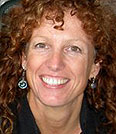 |
Dr. Gunhild Gjørv
Norway
Professor
University of Tromsø- The Arctic University of Norway
Research Associate, Norwegian Institute of International Affairs (NUPI)
Discipline: Political Science |
| Gunhild Hoogensen Gjørv is Professor of Political Science at the University of Tromsø- The Arctic University of Norway, as well as Research Associate at the Norwegian Institute of International Affairs (NUPI). She is also a member of the Norwegian Royal Commission on Afghanistan investigating the Norwegian efforts in Afghanistan from 2001-2014. Gjørv was the International Principal Investigator for the International Polar Year project “The Impacts of Oil and Gas Activity on Peoples of the Arctic using a Multiple Securities Perspective”, funded by the Norwegian and Canadian Research Councils, and is currently co-leader of the Arctic Extractive Industries Ph.D./Master’s program that examines the impacts of extractive resource development on Arctic communities. She is also partner in two projects examining the physiological, social and economic impacts of resource industries on Arctic communities from a human security perspective (and the resulting policy implications). Gjørv writes about international relations theory, security theory, security in the Arctic, and civil-military interaction (both in Arctic as well as complex operations settings such as Afghanistan). She is the author of "International Relations, Security and Jeremy Bentham" (Routledge, 2005), and "Understanding Civil-Military Interaction: Lessons Learned from the Norwegian Model" (Ashgate, 2014), as well as lead co-editor (and contributing author) to "Environmental and Human Security in the Arctic" (Routledge, 2013). She has also written articles in Review of International Studies, Security Dialogue, and the International Studies Review, among other journals. |
|
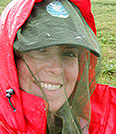 |
Dr. Tamara Harms
United States
Assistant Professor, College of Natural Science and Math
University of Alaska, Fairbanks
Discipline: Environmental Sciences |
| Tamara Harms is an ecosystem ecologist and biogeochemist focused on the interface of terrestrial ecosystems with freshwaters. She studies cycles of carbon, nitrogen, and phosphorus, the elements most essential to life. Much of her recent research has focused on the potential for thawing permafrost to influence export of nutrients, including nitrogen and phosphorus, from catchments to freshwaters and coasts. She collaborates with scientists at the Bonanza Creek and Arctic Long-Term Ecological Research Programs in Alaska, conducting research in arctic tundra and boreal forest. Tamara earned a B.S. in ecology and microbiology from the University of Washington, an M.S. and Ph.D. in biology from Arizona State University, and is currently an Assistant Professor in the Institute of Arctic Biology and Department of Biology & Wildlife at the University of Alaska Fairbanks. |
|
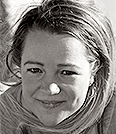 |
Dr. Anne Hansen
Denmark
Associate Professor, The Danish Center for Environmental Assessment
Aalborg University
Research Associate, Centre for Innovation and Research
Discipline: Environmental Sciences |
| Anne Merrild Hansen holds a M.Sc. in environmental engineering and a Ph.D. in strategic environmental assessment. Anne’s professional interest is implementation of large-scale industries and ventures for responsible performance in the Arctic. Her previous experience includes working as a planner in the municipality of South Greenland and as environmental and social advisor for Maersk Oil, Kalaallit Nunaat, where she amongst other coordinated a joint social baseline study on behalf of four operating oil and gas companies in Baffin Bay. Anne is presently associate professor at The Danish Centre for Environmental Assessment at Aalborg University. She is also a research associate at Centre for Innovation and Research in Culture and Learning in the Arctic and an external lecturer at Ilisimatusarfik, University of Greenland. Anne is further a member of the Baffin Bay Davis Strait Regional Implementation Team on Adaptation Actions for a Changing Arctic, with Arctic Council. |
|
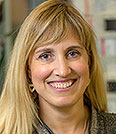 |
Ms. Gwen Holdmann
United States
Director, Alaska Center for Energy and Power (ACEP)
Discipline: Engineering |
| Gwen Holdmann is the Director of the Alaska Center for Energy and Power (ACEP), an applied energy research program based at the University of Alaska Fairbanks. ACEP focuses on community-scale fossil and renewable/alternative energy technologies with a special emphasis on delivering affordable energy to remote communities. As a highly interdisciplinary program, ACEP has 22 staff and more than 30 affiliated faculty whose expertise spans a wide range of energy-related disciplines. Prior to joining the University of Alaska, Gwen worked as a design engineer and energy project manager in the private sector. Most recently, Gwen served as the Vice President of New Development at Chena Hot Springs Resort near Fairbanks from 2004-08. While in that position, she helped design and manage construction of a 400 kW geothermal power plant, which is only operating geothermal power plant in the state and the lowest operating commercial geothermal power plant in the world (using 72°C geothermal fluid). In addition, she helped develop numerous other innovative energy projects ranging from hydrogen production and utilization, to cooling a 10,000 square foot ice museum year-round using geothermal fluid, to developing one of the first year-round commercial greenhouses in the state. Gwen moved to Alaska in 1994, shortly after graduating from Bradley University with a B.S. degree in Engineering Physics. She is the mother of three young children—Leif and Marais (twins, age 6), and Lael (age 4)—and is married to Iditarod and Yukon Quest musher Ken Anderson. Together, they maintain a kennel of about 35 dogs, and live off-grid in a house they built themselves powered through a combination of solar PV, wind, and diesel generator and heated with wood. In their free time, they enjoy sailing in their Catamaran and hope someday to complete the Northwest Passage, and/or the Northern Sea Route. |
|
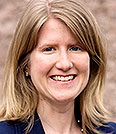 |
Dr. Noor Johnson
United States
Senior Advisor, Office of International Relations at the Smithsonian
Adjunct Professor
Brown University
Discipline: Anthropology |
| Noor Johnson is a Senior Advisor to the Office of International Relations at the Smithsonian, where she supports the development of global initiatives on cultural heritage and biodiversity conservation. She also holds an appointment as Adjuct Assistant Professor of Environment and Society at Brown University (Providence, RI). Her research has examined knowledge politics and processes in environmental governance, with a particular focus on Inuit involvement in climate change policy in the Canadian Arctic. As a postdoctoral fellow at Brown University, she worked with the Inuit Circumpolar Council to develop the Atlas of Community-Based Monitoring in a Changing Arctic (www.arcticcbm.org). Noor's recent work focuses on knowledge and consultation practices in relation to offshore oil and gas development in the Arctic. She has a Ph.D. from McGill University (Cultural Anthropology), an M.A. from American University (Public Anthropology), and a B.A. from Brown University (Development Studies). She previously served as a junior Fulbright Scholar in Sri Lanka, where she studied conflict and development. |
|
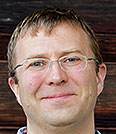 |
Dr. Trevor Lantz
Canada
Assistant Professor, School of Environmental Studies
University of Victoria
Discipline: Environmental Sciences |
| Trevor Lantz is an Assistant Professor in the School of Environmental Studies at the University of Victoria. He holds a Ph.D. (Landscape Ecology) from the University of British Columbia, an MSc (Ethnoecology) from the University of Victoria, and a BSc (Botany) from the University of Alberta. Trevor’s research focusses on understanding the rates, causes, and consequences of environmental change in the western Canadian Arctic. He and his students in the Arctic Landscape Ecology Lab work collaboratively with indigenous hunters and trappers to gain insight into regional environmental change and to guide detailed field research investigating the processes facilitating change. To place their field studies in a regional context, and to examine variation at a broader scale, they use remote sensing and modelling. Trevor’s recent research has focused primarily on four areas: 1) vegetation change, 2) thawing permafrost, 3) traditional knowledge studies, and 4) Arctic storm surges. Trevor lives in Victoria, British Columbia with his partner and daughter and enjoys playing in an amateur bluegrass band aptly named “Time in Between.” |
|
 |
Dr. Bjarni Magnússon
Iceland
Assistant Professor
Reykjavik University School of Law
Discipline: Law |
| Dr. Bjarni Már Magnússon is an assistant professor at Reykjavík University School of Law, Iceland. His teaching and research interest lies in public international law, especially the law of the sea. He holds a cand.jur degree in law and MA in international relations from the University of Iceland, LL.M in ocean and coastal law from the University of Miami and Ph.D in international law from the University of Edinburgh. Dr. Magnússon acted as a junior counsel for Bangladesh in the dispute concerning delimitation of the maritime boundary between Bangladesh and Myanmar in the Bay of Bengal. He is the author of the book: The Continental Shelf beyond 200 Nautical Miles ― Delineation, Delimitation and Dispute Settlement, published in 2015 by Brill/Nijhoff. |
|
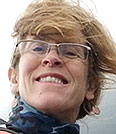 |
Ms. Susanna “Itty” Neuhaus-Schuck
United States
Associate Professor, School of Fine and Performing Arts
State University of New York at New Paltz
Discipline: Art |
| Itty S. Neuhaus is Associate Professor of Art at State University of New York at New Paltz. Her multi-media art projects use drawing, video, photography and sculpture to reflect upon change in nature in relation to human endeavor. The remote locations that have fueled the work include glacial crevasses and geothermal activity in Iceland, karst caves in Slovenia, and icebergs in Labrador. Awards include her first CIES Fulbright in 2010 to Newfoundland and Labrador, Canada called Current Shift: Shifting Perspectives. She has had residencies at Gros Morne National Park in Canada, the Fine Arts Work Center in Provincetown, MA, and the MacDowell Colony in New Hampshire, US. Exhibits include solo shows at the Sculpture Center in New York City, US and Stadthaus Ulm, Germany. Most recently the video installation Understory, the results of her Fulbright project in NL, Canada, was featured at Esther Massry Gallery and Dorsky Curatorial Projects in NY. She received a BFA in Painting from Pratt Institute in Brooklyn, NY and a Master of Fine Arts (terminal degree) in Sculpture from Tyler School of Art, Temple University, Elkins Park, PA. |
|
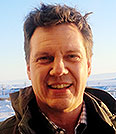 |
Dr. Gregory Poelzer
Canada
Associate Professor, Department of Political Studies
University of Saskatchewan
Discipline: Political Science |
| For more than 25 years, Greg Poelzer has been an enthusiastic advocate for Northern and international research and post-secondary education. Greg was the Founding Director and, currently the Executive Chair, of the International Centre for Northern Governance and Development. He was the inaugural Dean of Undergraduate Studies, University of the Arctic and is the Lead of the UArctic Thematic Network on Northern Governance. Greg’s research focuses on comparative Northern development and on Aboriginal-state relations. His co-authored book, Arctic Front: Defending Canada in the Far North (2008), was awarded (with his co-authors) the Donner Prize for excellence and innovation in Canadian public policy. His second co-authored book, From Treaty Peoples to Treaty Nation: A Road Map for All Canadians, is forthcoming, Spring 2015 (UBC Press). He is currently working on a sole authored monograph, entitled Saskatchewan: The Next Norway? Greg is a member of the Johnson-Shoyama Graduate School of Public Policy and the Department of Political Studies, University of Saskatchewan. Greg is an avid hunter and fisherman and enjoys mountain hiking and white water canoeing. |
|
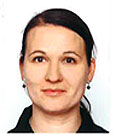 |
Dr. Laura Sokka
Finland
Senior Scientist, VTT Technical Research Centre of Finland, Ltd.
Discipline: Environmental Sciences |
| Laura Sokka works as a senior scientist in the Energy Systems team of the VTT Technical Research Centre of Finland. She has a Ph.D. in environmental science and policy from the University of Helsinki. She is specialized in climate and other environmental impact assessment applying life cycle assessment (LCA) and other life-cycle based methods. Her work mainly concerns environmental impacts of energy production solutions and systems. During the past years her research has particularly focused on the assessment of forest and other bioenergy sources, and local energy systems. In 2012-2014, Laura participated in the preparation of the IPCC AR5 WG3 report as a contributing author and chapter science assistant in Chapter 6 (transformation pathways). She is also a member of the Finnish national IPCC contact group. Moreover, she was an expert member of the Finnish delegation in the UNFCCC climate negotiations in Warsaw and in Lima, and in the IPCC meetings in Stockholm in 2013, and in Berlin and Copenhagen in 2014. Presently she is contributing to the on-going preparation of the report “Adaptation Actions for a Changing Arctic (AACA)” commissioned by the Arctic Council. |
|
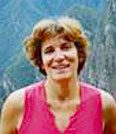 |
Dr. Maria Tysiachniouk
Russia
Researcher and Chair, Center for Independent Social Research
Discipline: Environmental Sociology |
Maria Tysiachniouk holds a Master of Science in Environmental Studies from Bard College, NY, a Ph.D. in Biology from the Russian Academy of Sciences, and a Ph.D. in Sociology from Wageningen University, the Netherlands (2012). She has taught at Herzen Pedagogical University, Ramapo College of New Jersey, Wageningen University, University of Lapland, and the University of Erfurt.
Since 2004 she has studied global governance through FSC certification and published a book "Transnational governance through private authority: the case of Forest Stewardship Council Certification in Russia. In 2012 she started extensive research on transnational oil production chains in Russian Arctic, focusing on the interactions between oil companies and indigenous communities. Maria Tysiachniouk has written more than 180 publications on topics related to transnational environmental governance, edited several books, and has fieldwork experience in several countries and regions. She is currently chair of the Environmental Sociology group at the Center for Independent Social Research, St. Petersburg. |
|
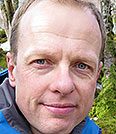 |
Dr. Øystein Varpe
Norway
Associate Professor, Department of Arctic Biology
University Centre in Svalbard
Adjunct Researcher
Akvaplan-niva (Tromsø, Norway)
Discipline: Biological Sciences |
| Øystein Varpe is an Associate Professor in ecology at Department of Arctic Biology, University Centre in Svalbard (Longyearbyen, Norway) and an adjunct researcher at Akvaplan-niva (Tromsø, Norway). Varpe holds a PhD in biology from University of Bergen (2007). His main interests are in evolutionary ecology, and his work spans a wide range of species but is mostly on birds, fish and plankton. He uses statistical analyses of data as well as mathematical models and simulations. Varpe runs the Seasonal Ecology Group where he, together with students and postdocs, focuses on how the strong seasonality of the Arctic shapes ecological processes. Fieldwork has been central in his work, and he has substantial experience from the Arctic as well as the Antarctic, including research cruises and work in seabird colonies. Varpe is a partner in several large research projects aiming to understand high-latitude organisms and ecosystems. He enjoys teaching and is a work package leader in bioCEED - Centre of Excellence in Biology Education. His broad interests also include conservation, harvesting, sustainability and the philosophy of science. He lives in Longyearbyen, 78 degrees north, with his wife and two children. |
|
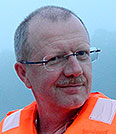 |
Dr. Niels Vestergaard
Denmark
Professor and Chair, Department of Environmental and Business Economics
University of Southern Denmark
Discipline: Economics |
| Niels Vestergaard has since 2005 been professor in Resource Economics at University of Southern Denmark. Before going into academia he works in the Greenland Home Rule Administration 1987-1990. He holds a Ph.D. in Economics from University of Copenhagen from 1998. He is leading the Centre of Fisheries & Aquaculture Management & Economics (FAME). Niels has supervised and completed 8 Ph.D. students and numerous Master students. Niels’ research is concentrated on the economics of renewable resources, and especially those resources with a focus on fisheries, marine biodiversity, and marine ecosystems and he has published about 40 peer-reviewed articles as well as numerous book chapters and scientific reports. Niels has published several articles about the Greenland Shrimp Fishery and recently (2014) he was a co-editor of a volume on Marine Invasive Species in the Arctic. He was also involved in the Arctic Climate Impact Assessment in 2005. Currently, Niels’ research is centered on modeling of technical progress in bio-economic models and on risk and uncertainty of Arctic marine resources. |
|
|


